Fleurs du Mal Magazine


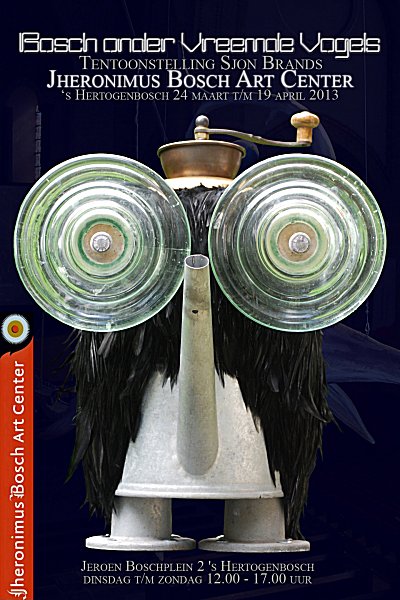
‘Bosch onder Vreemde Vogels’
tentoonstelling sjon brands
in het ‘Jheronimus Bosch Art Center’
Zondag 24 maart t/m vrijdag 19 april 2013 in het Jheronimus Bosch Art Center, Jeroen Boschplein 2, ’s Hertogenbosch
De ‘vreemde vogels’ van Sjon Brands, beeldend kunstenaar uit Tilburg, strijken dit voorjaar vrolijk neer in een landschap waar zij zich bijzonder thuis voelen: het Jeroen Bosch museum in Den Bosch. Deze merkwaardige beesten lijken onbekommerd de spot te drijven met ons ‘arme’ mensen. Het zijn stuk voor stuk indringende beelden opgebouwd uit afvalmateriaal, met toeters en veren, glazen ogen en koperen poten. Kortom, uit alles wat men op straat en in huis kan vinden. Het is een bos bonte karikaturen van ons menselijk bestaan.
De speelse tentoonstelling ‘Bosch onder Vreemde Vogels’ toont ons vierentwintig kleurrijke vreemde vogels. “Als kunstenaar ben ik altijd geboeid geweest door menselijke onvolkomenheden, laat ik maar zeggen menselijke ondeugden. Dat is leuk, dat is humor, het goed bedoelen en er bitter weinig van maken. Kijk maar om je heen. Kijk maar naar vogels. Vogels die ons elke morgen wakker schreeuwen en die net als mensen volop kwetteren, vrolijk zingen, ruzie maken en elkaar proberen te verleiden. Zie maar Jeroen Bosch met zijn vlijmscherpe oog voor onze ondeugden.” En inderdaad, de vogels op deze tentoonstelling hebben iets stouts, het zijn vertederende, schijnbaar onschuldige wezens, die allen op hun eigen manier verwijzen naar menselijke eigenaardigheden, die het leven soms zwaar, maar wel de moeite waard maken.
Het ‘Jheronimus Bosch Art Center’ is van maandag t/m zondag geopend tussen 12.00 en 17.00 uur. Inlichtingen: www.jheronimusbosch-artcenter.nl en www.sjonbrands.nl.
fleursdumal.nl magazine
More in: Archive A-B, Brands, Sjon, FDM Art Gallery, Sjon Brands, Theater van de Verloren Tijd
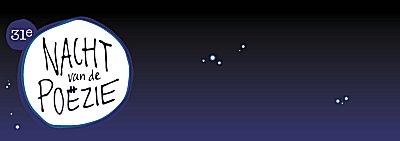
Cees Nooteboom en Wende op 31ste Nacht van de Poëzie
Cees Nooteboom en Wende maken de line-up van de 31ste Nacht van de Poëzie compleet. Het zeven uur durende evenement toont op 23 maart 2013 traditiegetrouw de stand van zaken in de Nederlandse poëzie. Twintig dichters, onder wie Tom Lanoye, Leonard Nolens en de nieuwe Dichter des Vaderlands Anne Vegter zullen het podium betreden. Tussen de voordrachten door zijn er entr’actes van o.a. topcellist Ernst Reijseger en illusionist Ramana. Wende geeft een exclusief voorproefje van haar nieuwe cd Last Resistance die later dit voorjaar verschijnt. Cees Nooteboom draagt onder andere voor uit zijn nieuwste bundel Licht Overal.
Wende unplugged: Een week voordat Wende haar nieuwe en in meerdere steden al uitverkochte clubtour Last Resistance – The Naked Sessions begint, geeft ze op de 31ste Nacht van de Poëzie in Utrecht vast een voorproefje met een unplugged versie van haar optreden. De clubtour is een prelude op de release van het langverwachte nieuwe album Last Resistance die op 10 mei 2013 plaatsvindt.
De dichter Cees Nooteboom: Het grote publiek kent Cees Nooteboom (1933) van zijn romans en reisverhalen, maar hij beschouwt zichzelf in de eerste plaats als dichter. ‘Zonder poëzie is mijn leven voor mij ondenkbaar,’ zegt hij in de documentaire Hotel Nooteboom (2009). Tijdens de 31ste Nacht van de Poëzie draagt de dichter Nooteboom voor uit de recent verschenen bundel Licht Overal (2012) die ontstond in samenwerking met goede vriend Hugo Claus (1929 – 2008).
De dichters: Maria Barnas, Ellen Deckwitz, Miguel Declercq, Lies van Gasse, Ruben van Gogh, Lucas Hirsch, Tjitske Jansen, Sjoerd Kuyper, Tom Lanoye, Tomas Lieske, Charlotte Mutsaers, Leonard Nolens, Cees Nooteboom, Tonnus Oosterhoff, René Puthaar, Allard Schröder, Anne Vegter, Leo Vroman (via straalverbinding), Elly de Waard, Bernard Wesseling, Kira Wuck
De entr’actes: Wende, Reijseger Fraanje Sylla, Dez Mona, Ramana, Jaap Kroneman, Toon Tellegen en Corrie van Binsbergen
De specials: Joop Visser & Jessica van Noord, Spilt Milk, Bernhard Christiansen & Ariadne Verstegen, Tjitske Jansen & Jasper le Clercq en diverse zalen met poëziecolleges van o.a. hoogleraren Geert Buelens en Maarten Steenmeijer, een collectie digitale poëzie gecureerd door Yra van Dijk en verschillende exposities van beeldende kunst gecureerd door Jan van der Veer.
De presentatoren: De 31ste Nacht van de Poëzie wordt gepresenteerd door de dichters Ingmar Heytze en Ester Naomi Perquin.
De Nachtbundel (gratis voor elke bezoeker!): Dankzij de medewerking van uitgeverij De Arbeiderspers is het mogelijk alle nachtwakers een poëziebundel aan te bieden met daarin een (in de meeste gevallen) niet eerder gepubliceerde bijdrage van de dichters die tijdens de 31ste Nacht van de Poëzie optreden.
De locatie: Media Plaza: De imposante spierwitte grote zaal van Media Plaza in De Jaarbeurs Utrecht, voor deze gelegenheid omgedoopt tot ‘Totaal Witte Kamer’ (naar een gedicht van Kouwenaar), vormt het hoofdpodium van deze editie van De Nacht van de Poëzie. Media Plaza vormt, op steenworp afstand van Utrecht Centraal Station, een avontuurlijk onderkomen voor De Nacht totdat de oorspronkelijke locatie Vredenburg na verbouwing wordt heropend.
Website: Nacht van de poëzie Utrecht
kempis.nl poetry magazine
More in: Cees Nooteboom, Jansen, Tjitske, Literary Events, Nacht van de Poëzie, POETRY ARCHIVE
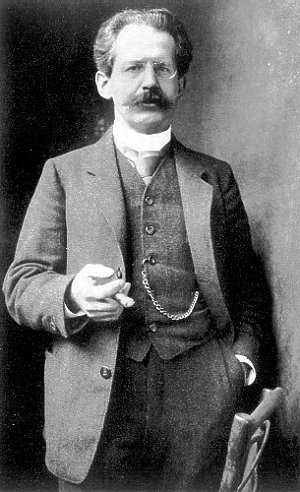
Arno Holz
(1863–1929)
Ballade
Kennt ihr das Lied, das alte Lied
Vom heilgen Hain zu Singapur?
Dort sitzt ein alter Eremit
Und kaut an seiner Nabelschnur.
Er kaut tagaus, er kaut tagein
Und nährt sich kärglich nur und knapp,
Denn ach, er ist ein grosses Schwein
Und nie fault ihm sein Luder ab!
Rings um ihn wie das liebe Vieh
Wälzt sich zerknirscht ganz Singapur
Und »Gott erhalte«, singen sie,
»Noch lange seine Nabelschnur!«
Denn also geht im Volk die Mähr
Und also lehrt auch dies Gedicht:
Wenn jene Nabelschnur nicht wär,
Dann wär auch manches Andre nicht.
Dann hätte beispielsweise Lingg
Nie völkerwandernd sich verrannt
Und Wagners Nibelungenring
Wär stellweis nicht so hirnverbrannt.
Uns hätte nie Professor Dahn
Urdeutsch dozirt von A bis Z
Und kein ägyptischer Roman
Verzierte unser Bücherbrett.
Wolffs Heijerleispoeterei,
Kein Baumbach wär ihr nachgetatscht,
Und Mirzas Reimklangklingelei
Summa cum laude ausgeklatscht.
Dann schlüge endlich unsrer Zeit
Das Herz ans Herz der Poesie,
Das Rütli schwüre seinen Eid
Und unser Tell wär das Genie.
So aber so – frei, fromm und frisch
Kaut weiter jener Nimmersatt;
Sein eigner Schmerbauch ist sein Tisch,
Sein –wisch ein Bananenblatt.
Und um ihn wie das liebe Vieh
Wälzt sich zerknirscht ganz Singapur
Und »Gott erhalte«, singen sie,
»Noch lange seine Nabelschnur!«
Arno Holz poetry
kempis.nl poetry magazine
More in: Archive G-H
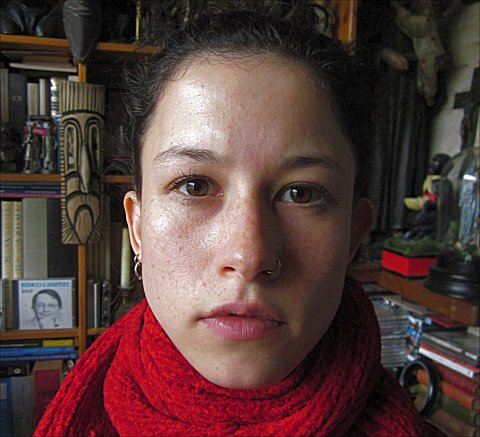
photo kempis.nl
Esther Porcelijn
We saw your boobs
Seth Macfarlane (maker van tekenfilmseries Family Guy en American Dad) heeft een lied gezongen bij de Oscaruitreiking afgelopen zondag (24 februari 2013). Het lied dat hij zong was een eigen creatie genaamd: “We saw your Boobs”
In dat lied gaat hij alle actrices af waarvan hij de borsten heeft gezien in films.
Dit alles lijkt vrij onschuldig ware het niet dat hij de woede van veel actrices hiermee op de hals heeft gehaald. Let wel: Dit zijn actrices die welwillend en volledig vrijwillig hun borsten hebben getoond op film. Zelfs levend humoristisch fossiel Jane Fonda is boos, dit is haar statement: “What I really didn’t like was the song and dance number about seeing actresses boobs. I agree with someone who said, if they want to stoop to that, why not list all the penises we’ve seen? Better yet, remember that this is a telecast seen around the world watched by families with their children and to many this is neither appropriate or funny. I also didn’t like the remark made about Quvenzhane and Clooney, or the stuff out of Ted’s mouth and all the comments about what women do to get thin for their dresses. Waaaay too much stuff about women and bodies, as though that’s what defines us.” (janefonda.com/janes-blog-posts/)
Andere statements van actrices zijn al verzameld.
Na dit te hebben gelezen twijfelde ik even of de boze vrouwen niet toch een punt hadden maar ik moet toch echt concluderen dat dit niet zo is.
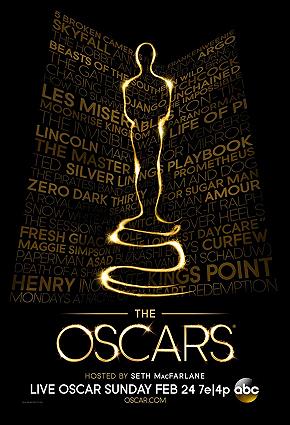
Stel je even voor dat je zelf een actrice bent. Je leest het script of scenario nog maanden of jaren voordat de film daadwerkelijk wordt opgenomen, en in een regieaanwijzing staat: ‘kleedt zich uit, staat met ontbloot bovenlichaam voor het raam, medium-shot van bovenlichaam, tegenspeler staat achter haar en omhelst haar innig.”
Dan weet je toch wat de consequentie is? Duizenden of misschien wel miljoenen mannen die zich verlekkeren aan je borsten. Youtube filmpjes die op repeat staan tijdens studentenhuis-feesten.
Goed, er is wat voor te zeggen als de nadruk van de Oscars al te veel ligt op het vrouwelijk lichaam maar de Oscaruitreiking is toch, behalve een erkenning van talent en goede films, ook een vleeskeuring? De vrouwen doffen zich op, kleden zich prachtig, trainen weken om er helemaal nonchie slank uit te zien. En dan feministisch gaan doen om een puberaal liedje van iemand waarvan je zo’n liedje kan verwachten. En dan nog over films waar die actrices miljoenen aan verdienen, mede door de blote borstenscènes.
Ben ik nu een antifeminist? Ik vind het filmpje namelijk enorm grappig want het verwoordt wat elke man stiekem denkt als hij de borsten van Charlize Theron heeft gezien: “Ha! Betrapt!” De scènes zijn voyeuristisch gefilmd met dit doel voor ogen. Nou fucking en? Er is zelfs een Mannenversie gemaakt van het nummer.
Ik weet dat grappen over vrouwen erg makkelijk worden gemaakt, tot op het punt dat ook ik mij ongemakkelijk voel als moderne vrouw die niet beter weet dan dat mannen en vrouwen gelijkwaardig zijn. Ook ik merk soms dat seksgrappen net iets te snel worden gemaakt, en als iemand vijf keer dezelfde grap maakt dan is het op een gegeven moment geen grap meer.
Maar dit voorbeeld is voor mij niet kwetsend, denigrerend of aanstootgevend, ik vind het grappig.
Hypocriet dekt de lading zelfs niet helemaal. Of zie ik dit verkeerd?
Esther Porcelijn: 01-03-2013 Univers Blog
kempis.nl poetry magazine
More in: Porcelijn, Esther, Porcelijn, Esther
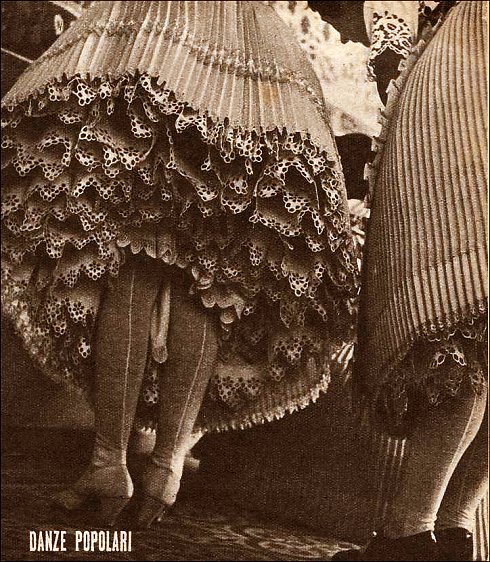
Camera obscura: Danze popolari
fleursdumal.nl magazine
More in: Camera Obscura
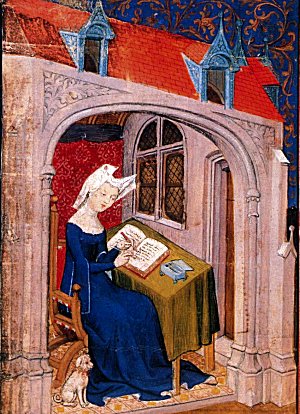
Christine de Pisan
(ca 1364-1430)
BALLAD
Ah, Death, Death, Death, to thee I make my prayer!
Come, rend me from this dolorous world apart!
Life lures no longer: since my lady fair
Would have me shun her, let my hapless heart
Be very prey to pain and sorrow’s sword.
Gladness I leave and all delight for aye,
And thee alone, O Death, have I implored
Because my lady hath bidden me good-bye.
Alas, alas, what doleful news is there!
Never to knight assailed with glaive or dart
Came heavier trouble than the woes I share,
I, who have gathered up in shame and smart
An evil greater than I may record:
Since now my love from all adventure high
Must needs withdraw, and death be my reward
Because my lady hath bidden me good-bye.
Ah, lady of mine, can’st thou such hardness dare
And suffer me in anguish to depart
For love of thee? Yet Love must witness bear
Who knoweth no age can show, nor any art,
Servant more faithful both in deed and word
Among all lovers that he might espy:
But my mishaps a worser end afford
Because my lady hath bidden me good-bye.
Ah, God of love, why sufferest thou, fair lord,
That thus in sorrow undeserved I die?
All things I leave, of all to be abhorred,
Because my lady hath bidden me good-bye.
Christine de Pisan poetry
kempis.nl poetry magazine
More in: Archive O-P, Pisan, Christine de
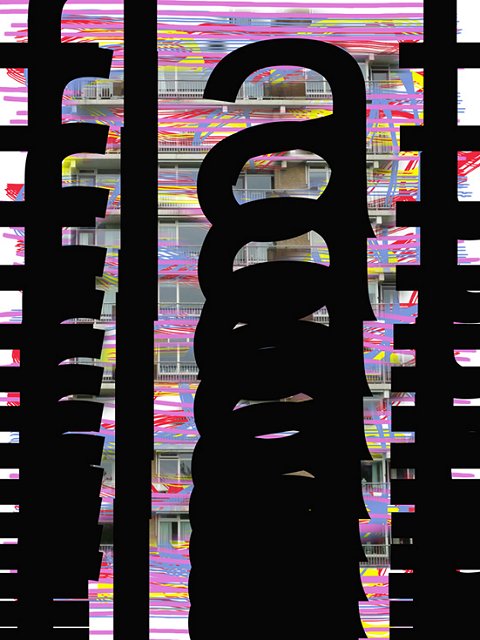
Freda Kamphuis © FLAT 2013
kempis.nl poetry magazine
More in: Freda Kamphuis, Kamphuis, Freda
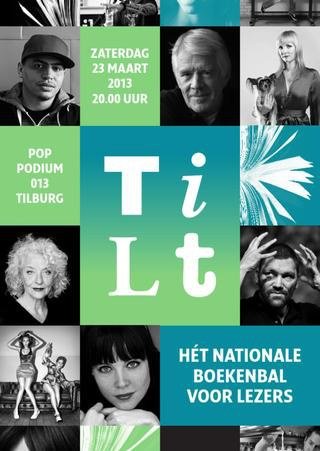
3e editie literaire festival TiLT op 23 maart 2013
Literair Variété Spektakel + Henk van Straten + Fresku + Kees van Kooten + Nelleke Noordervliet + Guus Kuijer + Jasper Henderson + Ellen Deckwitz + Delphine Lecompte + Christiaan Weijts + Jan van Mersbergen + Mark Verver + A.H.J. Dautzenberg + Thomas Möhlmann + Elfie Tromp + Goudzwartdebat + Esther Porcelijn en Tom America + VJ’s Studio M + DJ St. Paul + Thomése vs. Leeuwis vs. Neggers
Op zaterdag 23 maart 2013 vindt het literaire festival TiLT voor de derde keer plaats in Tilburg. TiLT staat voor Tilburg Literatuur & Theater. Maar ook voor deining, beweging, opschudding. En dat is precies wat het festival wil bewerkstelligen. Literatuur tot leven wekken. Boeken wakker schudden. Letteren koppelen aan andere disciplines. Muziek, film, beeldende kunst, theater. En dat allemaal in één prachtige avond. Een feest voor wie leest!
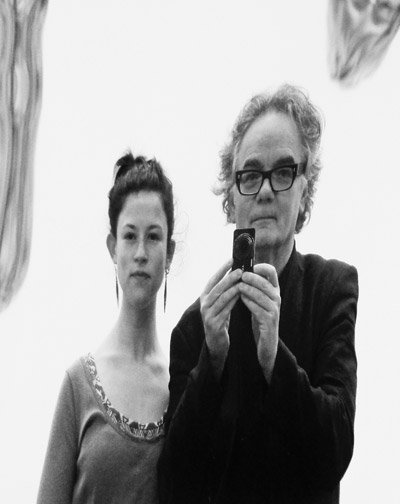
esther porcelijn & tom america
Het programma wordt dit jaar bruisender dan ooit! TiLT presenteert namelijk, in samenwerking met de CPNB, hét nationale slotfeest voor lezers in het laatste weekend van de Boekenweek. Op het programma pronken de schrijver van het Boekenweekgeschenk Kees van Kooten en Nelleke Noordervliet, schrijver van het Boekenweekessay. Ook bevestigd zijn; Guus Kuijer, Christiaan Weijts, Ellen Deckwitz, Mark Verver, Esther Porcelijn (Stadsdichter Tilburg) & Tom America, Anton Dautzenberg, P.F. Thomése, Leeuwis & Neggers, Delphine Lecompte en Thomas Möhlmann.
En een spetterende finale! Daarvoor zorgen Ivo Victoria en Rob Waumans met hun Groot Internationaal Literair Variété Spektakel. Een luchtig maar prikkelend programma vol snelinterviews (met o.a. Henk van Straten), kutrecensies, publieksparticipatie, een quiz, muziek en een mystery guest. En Fresku, de rappende revelatie van afgelopen jaar. Zij sluiten het festival af. Eén ding is zeker: het wordt een finale om niet licht te vergeten. Allemaal naar de Dommelsch Zaal!

fleursdumal.nl magazine
More in: A.H.J. Dautzenberg, Archive O-P, Art & Literature News, Elfie Tromp, Lecompte, Delphine, Porcelijn, Esther, The talk of the town, THEATRE, Tilt Festival Tilburg, Tom America
James Joyce
(1882-1941)
Clay
The matron had given her leave to go out as soon as the women’s tea was over and Maria looked forward to her evening out. The kitchen was spick and span: the cook said you could see yourself in the big copper boilers. The fire was nice and bright and on one of the side-tables were four very big barmbracks. These barmbracks seemed uncut; but if you went closer you would see that they had been cut into long thick even slices and were ready to be handed round at tea. Maria had cut them herself.
Maria was a very, very small person indeed but she had a very long nose and a very long chin. She talked a little through her nose, always soothingly: “Yes, my dear,” and “No, my dear.” She was always sent for when the women quarrelled Over their tubs and always succeeded in making peace. One day the matron had said to her:
“Maria, you are a veritable peace-maker!”
And the sub-matron and two of the Board ladies had heard the compliment. And Ginger Mooney was always saying what she wouldn’t do to the dummy who had charge of the irons if it wasn’t for Maria. Everyone was so fond of Maria.
The women would have their tea at six o’clock and she would be able to get away before seven. From Ballsbridge to the Pillar, twenty minutes; from the Pillar to Drumcondra, twenty minutes; and twenty minutes to buy the things. She would be there before eight. She took out her purse with the silver clasps and read again the words A Present from Belfast. She was very fond of that purse because Joe had brought it to her five years before when he and Alphy had gone to Belfast on a Whit-Monday trip. In the purse were two half-crowns and some coppers. She would have five shillings clear after paying tram fare. What a nice evening they would have, all the children singing! Only she hoped that Joe wouldn’t come in drunk. He was so different when he took any drink.
Often he had wanted her to go and live with them;-but she would have felt herself in the way (though Joe’s wife was ever so nice with her) and she had become accustomed to the life of the laundry. Joe was a good fellow. She had nursed him and Alphy too; and Joe used often say:
“Mamma is mamma but Maria is my proper mother.”
After the break-up at home the boys had got her that position in the Dublin by Lamplight laundry, and she liked it. She used to have such a bad opinion of Protestants but now she thought they were very nice people, a little quiet and serious, but still very nice people to live with. Then she had her plants in the conservatory and she liked looking after them. She had lovely ferns and wax-plants and, whenever anyone came to visit her, she always gave the visitor one or two slips from her conservatory. There was one thing she didn’t like and that was the tracts on the walks; but the matron was such a nice person to deal with, so genteel.
When the cook told her everything was ready she went into the women’s room and began to pull the big bell. In a few minutes the women began to come in by twos and threes, wiping their steaming hands in their petticoats and pulling down the sleeves of their blouses over their red steaming arms. They settled down before their huge mugs which the cook and the dummy filled up with hot tea, already mixed with milk and sugar in huge tin cans. Maria superintended the distribution of the barmbrack and saw that every woman got her four slices. There was a great deal of laughing and joking during the meal. Lizzie Fleming said Maria was sure to get the ring and, though Fleming had said that for so many Hallow Eves, Maria had to laugh and say she didn’t want any ring or man either; and when she laughed her grey-green eyes sparkled with disappointed shyness and the tip of her nose nearly met the tip of her chin. Then Ginger Mooney lifted her mug of tea and proposed Maria’s health while all the other women clattered with their mugs on the table, and said she was sorry she hadn’t a sup of porter to drink it in. And Maria laughed again till the tip of her nose nearly met the tip of her chin and till her minute body nearly shook itself asunder because she knew that Mooney meant well though, of course, she had the notions of a common woman.
But wasn’t Maria glad when the women had finished their tea and the cook and the dummy had begun to clear away the tea- things! She went into her little bedroom and, remembering that the next morning was a mass morning, changed the hand of the alarm from seven to six. Then she took off her working skirt and her house-boots and laid her best skirt out on the bed and her tiny dress-boots beside the foot of the bed. She changed her blouse too and, as she stood before the mirror, she thought of how she used to dress for mass on Sunday morning when she was a young girl; and she looked with quaint affection at the diminutive body which she had so often adorned, In spite of its years she found it a nice tidy little body.
When she got outside the streets were shining with rain and she was glad of her old brown waterproof. The tram was full and she had to sit on the little stool at the end of the car, facing all the people, with her toes barely touching the floor. She arranged in her mind all she was going to do and thought how much better it was to be independent and to have your own money in your pocket. She hoped they would have a nice evening. She was sure they would but she could not help thinking what a pity it was Alphy and Joe were not speaking. They were always falling out now but when they were boys together they used to be the best of friends: but such was life.
She got out of her tram at the Pillar and ferreted her way quickly among the crowds. She went into Downes’s cake-shop but the shop was so full of people that it was a long time before she could get herself attended to. She bought a dozen of mixed penny cakes, and at last came out of the shop laden with a big bag. Then she thought what else would she buy: she wanted to buy something really nice. They would be sure to have plenty of apples and nuts. It was hard to know what to buy and all she could think of was cake. She decided to buy some plumcake but Downes’s plumcake had not enough almond icing on top of it so she went over to a shop in Henry Street. Here she was a long time in suiting herself and the stylish young lady behind the counter, who was evidently a little annoyed by her, asked her was it wedding-cake she wanted to buy. That made Maria blush and smile at the young lady; but the young lady took it all very seriously and finally cut a thick slice of plumcake, parcelled it up and said:
“Two-and-four, please.”
She thought she would have to stand in the Drumcondra tram because none of the young men seemed to notice her but an elderly gentleman made room for her. He was a stout gentleman and he wore a brown hard hat; he had a square red face and a greyish moustache. Maria thought he was a colonel-looking gentleman and she reflected how much more polite he was than the young men who simply stared straight before them. The gentleman began to chat with her about Hallow Eve and the rainy weather. He supposed the bag was full of good things for the little ones and said it was only right that the youngsters should enjoy themselves while they were young. Maria agreed with him and favoured him with demure nods and hems. He was very nice with her, and when she was getting out at the Canal Bridge she thanked him and bowed, and he bowed to her and raised his hat and smiled agreeably, and while she was going up along the terrace, bending her tiny head under the rain, she thought how easy it was to know a gentleman even when he has a drop taken.
Everybody said: “0, here’s Maria!” when she came to Joe’s house. Joe was there, having come home from business, and all the children had their Sunday dresses on. There were two big girls in from next door and games were going on. Maria gave the bag of cakes to the eldest boy, Alphy, to divide and Mrs. Donnelly said it was too good of her to bring such a big bag of cakes and made all the children say:
“Thanks, Maria.”
But Maria said she had brought something special for papa and mamma, something they would be sure to like, and she began to look for her plumcake. She tried in Downes’s bag and then in the pockets of her waterproof and then on the hallstand but nowhere could she find it. Then she asked all the children had any of them eaten it — by mistake, of course — but the children all said no and looked as if they did not like to eat cakes if they were to be accused of stealing. Everybody had a solution for the mystery and Mrs. Donnelly said it was plain that Maria had left it behind her in the tram. Maria, remembering how confused the gentleman with the greyish moustache had made her, coloured with shame and vexation and disappointment. At the thought of the failure of her little surprise and of the two and fourpence she had thrown away for nothing she nearly cried outright.
But Joe said it didn’t matter and made her sit down by the fire. He was very nice with her. He told her all that went on in his office, repeating for her a smart answer which he had made to the manager. Maria did not understand why Joe laughed so much over the answer he had made but she said that the manager must have been a very overbearing person to deal with. Joe said he wasn’t so bad when you knew how to take him, that he was a decent sort so long as you didn’t rub him the wrong way. Mrs. Donnelly played the piano for the children and they danced and sang. Then the two next-door girls handed round the nuts. Nobody could find the nutcrackers and Joe was nearly getting cross over it and asked how did they expect Maria to crack nuts without a nutcracker. But Maria said she didn’t like nuts and that they weren’t to bother about her. Then Joe asked would she take a bottle of stout and Mrs. Donnelly said there was port wine too in the house if she would prefer that. Maria said she would rather they didn’t ask her to take anything: but Joe insisted.
So Maria let him have his way and they sat by the fire talking over old times and Maria thought she would put in a good word for Alphy. But Joe cried that God might strike him stone dead if ever he spoke a word to his brother again and Maria said she was sorry she had mentioned the matter. Mrs. Donnelly told her husband it was a great shame for him to speak that way of his own flesh and blood but Joe said that Alphy was no brother of his and there was nearly being a row on the head of it. But Joe said he would not lose his temper on account of the night it was and asked his wife to open some more stout. The two next-door girls had arranged some Hallow Eve games and soon everything was merry again. Maria was delighted to see the children so merry and Joe and his wife in such good spirits. The next-door girls put some saucers on the table and then led the children up to the table, blindfold. One got the prayer-book and the other three got the water; and when one of the next-door girls got the ring Mrs. Donnelly shook her finger at the blushing girl as much as to say: 0, I know all about it! They insisted then on blindfolding Maria and leading her up to the table to see what she would get; and, while they were putting on the bandage, Maria laughed and laughed again till the tip of her nose nearly met the tip of her chin.
They led her up to the table amid laughing and joking and she put her hand out in the air as she was told to do. She moved her hand about here and there in the air and descended on one of the saucers. She felt a soft wet substance with her fingers and was surprised that nobody spoke or took off her bandage. There was a pause for a few seconds; and then a great deal of scuffling and whispering. Somebody said something about the garden, and at last Mrs. Donnelly said something very cross to one of the next-door girls and told her to throw it out at once: that was no play. Maria understood that it was wrong that time and so she had to do it over again: and this time she got the prayer-book.
After that Mrs. Donnelly played Miss McCloud’s Reel for the children and Joe made Maria take a glass of wine. Soon they were all quite merry again and Mrs. Donnelly said Maria would enter a convent before the year was out because she had got the prayer-book. Maria had never seen Joe so nice to her as he was that night, so full of pleasant talk and reminiscences. She said they were all very good to her.
At last the children grew tired and sleepy and Joe asked Maria would she not sing some little song before she went, one of the old songs. Mrs. Donnelly said “Do, please, Maria!” and so Maria had to get up and stand beside the piano. Mrs. Donnelly bade the children be quiet and listen to Maria’s song. Then she played the prelude and said “Now, Maria!” and Maria, blushing very much began to sing in a tiny quavering voice. She sang I Dreamt that I Dwelt, and when she came to the second verse she sang again:
I dreamt that I dwelt in marble halls With vassals and serfs at my side, And of all who assembled within those walls That I was the hope and the pride.
I had riches too great to count; could boast Of a high ancestral name, But I also dreamt, which pleased me most, That you loved me still the same.
But no one tried to show her her mistake; and when she had ended her song Joe was very much moved. He said that there was no time like the long ago and no music for him like poor old Balfe, whatever other people might say; and his eyes filled up so much with tears that he could not find what he was looking for and in the end he had to ask his wife to tell him where the corkscrew was.
James Joyce stories
kempis.nl poetry magazine
More in: Joyce, James, Joyce, James
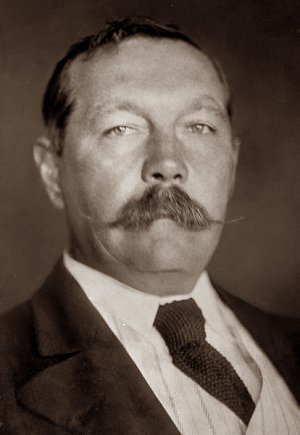
Arthur Conan Doyle
(1859-1930)
A Woman’s Love
I am not blind I understand;
I see him loyal, good, and wise,
I feel decision in his hand,
I read his honour in his eyes.
Manliest among men is he
With every gift and grace to clothe
him;
He never loved a girl but me —
And I I loathe him! loathe him!
The other! Ah! I value him
Precisely at his proper rate,
A creature of caprice and whim,
Unstable, weak, importunate.
His thoughts are set on paltry gain —
You only tell me what I see —
I know him selfish, cold and vain;
But, oh! he’s all the world to me!
Arthur Conan Doyle poetry
kempis.nl poetry magazine
More in: Archive C-D, Arthur Conan Doyle, Doyle, Arthur Conan
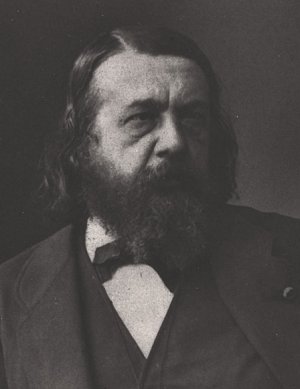
Théophile Gautier
(1811-1872)
Coquetterie posthume
Quand je mourrai, que l’on me mette,
Avant de clouer mon cercueil,
Un peu de rouge à la pommette,
Un peu de noir au bord de l’oeil.
Car je veux dans ma bière close,
Comme le soir de son aveu,
Rester éternellement rose
Avec du kh’ol sous mon oeil bleu.
Pas de suaire en toile fine,
Mais drapez-moi dans les plis blancs
De ma robe de mousseline,
De ma robe à treize volants.
C’est ma parure préférée ;
Je la portais quand je lui plus.
Son premier regard l’a sacrée,
Et depuis je ne la mis plus.
Posez-moi, sans jaune immortelle,
Sans coussin de larmes brodé,
Sur mon oreiller de dentelle
De ma chevelure inondé.
Cet oreiller, dans les nuits folles,
A vu dormir nos fronts unis,
Et sous le drap noir des gondoles
Compté nos baisers infinis.
Entre mes mains de cire pâle,
Que la prière réunit,
Tournez ce chapelet d’opale,
Par le pape à Rome bénit :
Je l’égrènerai dans la couche
D’où nul encor ne s’est levé ;
Sa bouche en a dit sur ma bouche
Chaque Pater et chaque Ave.
Théophile Gautier poetry
kempis.nl poetry magazine
More in: Archive G-H, Gautier, Théophile
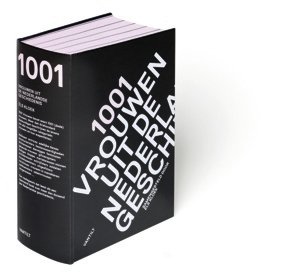
Els Kloek
A.s. zondag 17 maart 2013 om 11.20 uur op Nederland 1
In het boek 1001 vrouwen uit de Nederlandse geschiedenis heeft historica Els Kloek de levensbeschrijvingen van vrouwen verzameld die in de afgelopen eeuwen op een of andere manier naam hebben gemaakt. Bij de samenstelling werd niet alleen gekeken naar bijzondere prestaties, maar ook naar de reputatie waarmee de vrouw de aandacht op zich wist te vestigen.
Een bonte stoet vrouwen trekt voorbij: reuzin Trijntje Keever, bordeelhoudster Thérèse, spion Mata Hari, schilderes Judith Leyster, feministe Joke Smit en muze Mathilde Willink. Door de levensverhalen worden al deze opmerkelijke en bijzondere vrouwen aan de vergetelheid onttrokken. In het gebouw van Bijzondere Collecties van de Universiteit van Amsterdam is een gelijknamige tentoonstelling ingericht, die nog tot en met 20 mei is te zien.
Kees van Kooten & Nelleke Noordervliet
A.s. zondag om 19.20 uur op Nederland 2
Gouden Tijden, Zwarte Bladzijden is het thema van de 78e Boekenweek, waarbij het draait om het bewogen en roemrijke verleden van Nederland. Moeten we ons schamen voor de Zwarte Bladzijden? Mogen we trots zijn op de Gouden Tijden? Aan Kees van Kooten en Nelleke Noordervliet de opdracht deze vragen te onderzoeken in het Boekenweekgeschenk De verrekijker en het Boekenweekessay De leeuw en zijn hemd.
In haar laatste boek, de historische roman Vrij man, schetst Nelleke Noordervliet een beeld van het dagelijkse leven in de Gouden Eeuw. De opdracht om voor het Boekenweekessay de vaderlandse geschiedenis tegen het licht te houden lijkt dan ook een logisch vervolg. Overheerst de schaamte voor ons koloniaal verleden of zijn we trots op onze handelsmacht? In De leeuw en zijn hemd onderzoekt Noordervliet de dubbelzinnige omgang met ons verleden. Per trekschuit reist ze door de Nederlandse geschiedenis en komt onderweg historische figuren tegen aan wie ze vragen kan stellen.
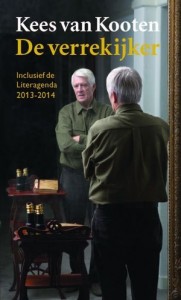
De Zwarte Bladzijden in de vaderlandse geschiedenis beperken zich niet tot ons koloniaal verleden. De opstelling van de Nederlanders tijdens de Tweede Wereldoorlog is een andere beladen discussie. Waarom hadden de Duitsers zo’n succes met de jodenvervolging in Nederland? Kees van Kooten nam voor het Boekenweekgeschenk De verrekijker het oorlogsdagboek en de agenda’s van zijn vader als uitgangspunt. Aan de hand van de notities van zijn vader, die in de oorlog sergeant was, gaat Van Kooten op zoek naar mogelijke zwarte bladzijden, maar ontdekt dat zijn vader in de oorlogsjaren vooral een gouden tijd beleefde. Hoewel een handgeschreven brief over een door hem in beslag genomen verrekijker de nodige vragen oproept.
VPRO BOEKEN zondag 17 maart 2013
fleursdumal.nl magazine
More in: Archive K-L, Archive M-N, Art & Literature News
Thank you for reading Fleurs du Mal - magazine for art & literature